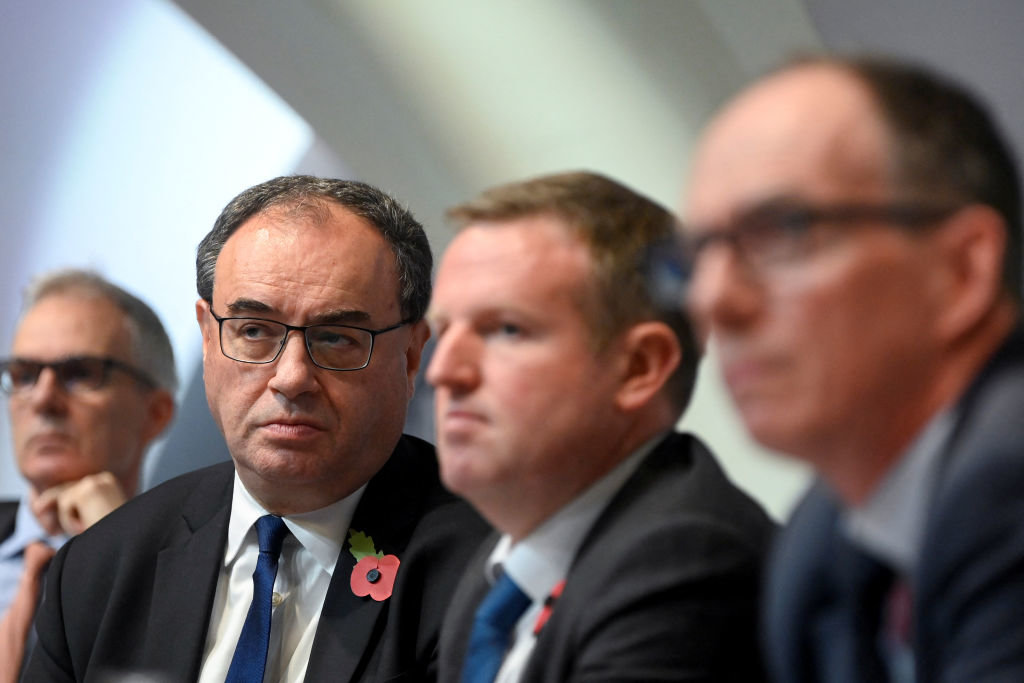The Bank of England has raised UK interest rates by 75 basis points to 3.0 percent, the sharpest rise in three decades, and said further increases would be required despite predicting a long recession.
The Bank forecast the economy would shrink by 0.75% in the second half of this year and continue to contract through 2023 and into 2024 – a grim backdrop for a government seeking re-election within two years.
However, the picture is not quite that simple.
The Bank – which targets inflation of 2% – predicted it would peak around 11% in the latter part of 2022 before falling some way below target in two years and lower still in three years’ time. That is a strong signal that forecasts for official rates to peak somewhere around 5% are overdone.
Unusually, Bank Governor Andrew Bailey explicitly said as much: “Based on where we stand today, we think Bank Rate will have to go up by less than currently priced in financial markets,” he told a press conference.
The Bank bases its economic forecasts on market expectations for UK rates. For this quarterly report, that meant assuming a peak of 5.25% next year. By forecasting inflation to fall well below target, the Bank is saying those expectations are too steep. Markets quickly responded to the Bank’s latest report by pricing in a UK rate high below 4.75%. Even that may be too high.
The Bank also conditioned its forecasts on fiscal policy as it is – i.e. up to and including the tax cuts reversed by Jeremy Hunt as soon as he became Chancellor. It has not factored in the £40+ billion of fiscal tightening which is expected from Hunt in a fortnight. If that is delivered, rates may have to rise less than would otherwise have been the case.
Taken in the round, it feels like UK rates will peak in the 4s – maybe even the 3s – not above 5 percent, so the recession we’re already in may be a little shorter and shallower, although less harsh monetary policy will only help to offset the pain from impending tax rises and public spending cuts.
For many people, the damage has already been done. After Liz Truss’s brief reign threw markets into a tailspin, two- and five-year fixed mortgage rates are still well above six percent – up from less than 3% at the start of the year – potentially adding hundreds of pounds a month to monthly payments.
Bailey did not shy away from the impact of September’s mini-budget. “There has been a questioning of UK policy … and that will have some lasting effect,” he said.
That global perception may force Hunt and Rishi Sunak to do more on the fiscal side than they would otherwise have to.
Factors that could improve or worsen the outlook are largely beyond the control of the Bank or government. The path of war in Ukraine (and its impact on energy prices), Western tensions with China and the ability of authorities in the euro zone, Beijing and Washington to curb inflation without causing harsh recessions will all be pivotal.
One notable development over the last month is the extent to which wholesale gas prices have fallen. They are volatile but there is evidence that business and households across Europe have responded to rocketing prices by reducing energy consumption, which – together with mild Autumn weather – has helped raise storage levels and suggests lower prices could endure.
There is one further wild card.
On Tuesday, the Bank held its first active sale of government bonds as part of a programme to unwind hundreds of billions of pounds of QE. A modest £750 million were sold but no one can be sure that ongoing sales will not add further to government borrowing costs. The Bank has said it can pull this off smoothly over a number of years, but the assumption had been that QT would only be done when the economy was growing strongly and public finances were healthy. That is emphatically not the case.
There is little doubt that the next year or so is going to be tough. But there are many moving parts which will dictate just how tough and whether we’re past the worst by 2024.





